Does Anxiety Cause Itching? How Do You Treat It?
Find out if there is a link between the two and what can be done to stop it.
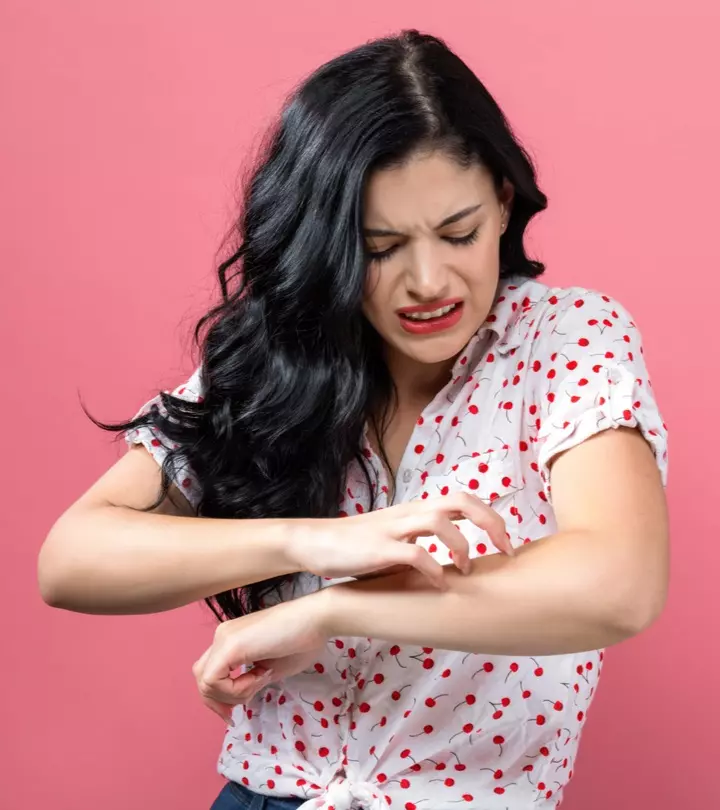
Image: Shutterstock
Anxiety is not merely a psychological problem. It can present itself as a physical symptom, as well. One such symptom of anxiety is itching. This sensation can occur anywhere on your body, including your arms, legs, face, and scalp. In this article, we will look at the symptoms of anxiety itching, prevention tips, and how to treat it. Keep reading!
In This Article
What Is Anxiety Itching?
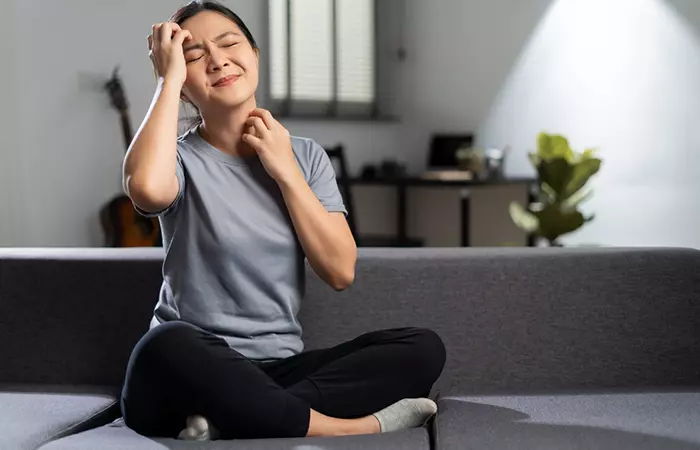
Anxiety and stress can manifest themselves in different ways. For example, when you are anxious, your body produces a stress reaction, which affects your neurological system and leads to itchy or burning skin. Many types of itching are associated with anxiety (1).
A study conducted in 2019 examined the level of anxiety in different age groups, ranging from 18 to 65 and above. The level of severity in symptoms was witnessed most in individuals in the age group between 18 and 29 with the level of severity decreasing with age as noticed in participants in the age group of 65 and over. The graph below depicts different age groups in relation to the level of anxiety they experienced.

Analysis Of Anxiety In Different Age Groups
Source: Symptoms of Generalized Anxiety Disorder Among Adults: United States, 2019Dr. Elizabeth Lombardo (Ph.D., CEO, Global Keynote Speaker, Concierge Coach) explains, “When worry sets in, your body’s stress response may go into overdrive. This can cause nerve damage and sensory symptoms like skin burning or itching, which may or may not be evident. This sensation can affect your arms, legs, face, and scalp, among other places on your body. Stress generates a variety of physiological changes, including hormone imbalances and neural system modifications, which can result in unpleasant sensations along one or more nerves. Anywhere on the skin, these sensations can generate a burning or itchy sensation.”
Anxiety is manifested as both mental and physical symptoms. Let’s look at them in the next section.
Key Takeaways
- Anxiety can cause itching, stress hives, and sweat rashes
- Keep your fingernails clipped to avoid infections due to itching.
- Stock up on calamine lotion or corticosteroid creams to treat itching.
- Consult your doctor if your itching is accompanied by fever.
- Talk to a psychologist or counselor to help manage your anxiety.
Common Symptoms Of Anxiety
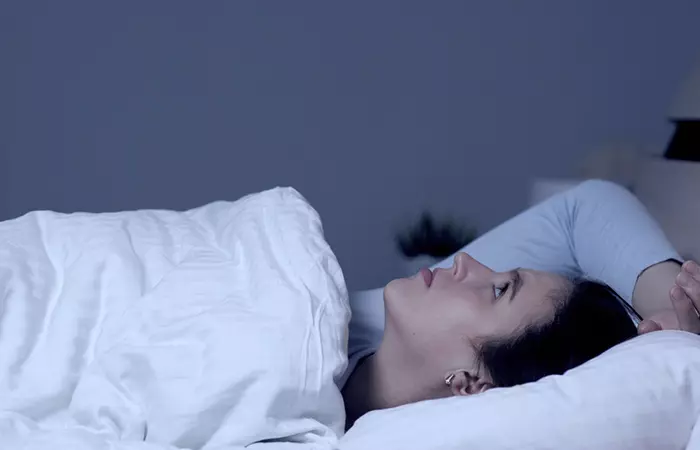
The mental symptoms of anxiety include (2):
- Racing thoughts
- Uncontrollable over-thinking
- Difficulty concentrating
- A feeling of panic
- Irritability
- Heightened alertness
- Sleep problems
- Changes in appetite
- Dissociation
Some physical symptoms of anxiety are (2):
- Sweating
- Heavy and fast breathing
- Hot flashes
- Dry mouth
- Shaking
- Hair loss
- Fast heartbeat
- Lack of energy
- Dizziness and fainting
- Stomach aches
- Itching
 Trivia
TriviaA study published in 2021 illustrates the spike in anxiety levels since the COVID-19 pandemic. It compares the prevalence rates of anxiety cases reported by US adults for the NHIS 2019 survey with 30,915 participants and the UAS 2020 survey with 8,022 participants. Participants reported an increase in anxiety symptoms from 8.1% in 2019 to 21.4% in 2020. And while the levels fluctuated, they were observed to be at least 3% above 2019 levels till the end of 2020.
Itchy skin comes with its own set of symptoms that can cause you some distress. Learn more about the symptoms of itching in the next section.
Symptoms Of Itchy Skin
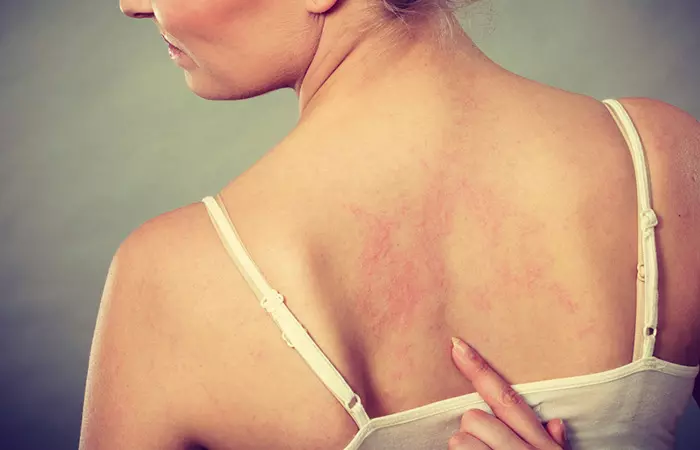
Itchy skin can lead to redness, skin breakage, bleeding, and serious infection if scratched too much. People with eczema and itchy skin can scratch excessively, leading to open wounds. These wounds can become infected and require treatment via steroids or other antibiotic medications.
Are you wondering how to identify itching caused by anxiety? Find out in the next section.
How To Identify Itching Caused By Anxiety
Itching and anxiety can be two unrelated things. Anxiety rarely causes itching on its own, and other symptoms are often associated with it. It is difficult to establish the source of itchiness caused by anxiety. It may need a comprehensive medical examination. The following are the most common causes of anxiety itching:
- Stress Hives: Hives are itchy bumps that occur when your immune system reacts to allergens. But they can also be caused by stress and anxiety (3). If you are dealing with stress-induced hives, besides doing some stress-reducing exercises or deep breathing, trying home remedies for allergies, such as baking soda, aloe vera, coconut oil, etc., may provide some relief and help soothe your skin.
- Sweat Rash: Anxiety raises the rate and volume of sweating, leading to a rash (also referred to as heat rash). While these rashes are harmless, they are exceedingly itchy and may last for two weeks (4).
- Triggered Itch: While uncommon, anxiety can exacerbate pre-existing skin issues. Stress and anxiety have been found to be closely related to eczema, psoriasisi A chronic skin condition characterized by itchy skin, rashes, and scaly patches that do not have a cure. , and other skin diseases (5).
- Worsened Itch: Being anxious may aggravate an itch that already exists. What would typically be a minor itch could be amplified and made to seem a lot worse. It can also be associated with sensations similar to itching, such as tingling.
 Quick Tip
Quick TipWhat is the best way to get rid of anxiety itching? In the following section, you will learn about the treatment methods that may benefit you. Keep reading!
How To Treat Anxiety Itching
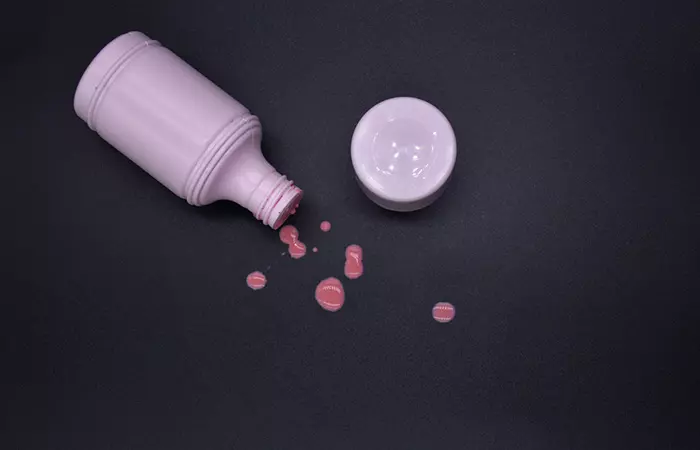
Understanding the itch-anxiety cycle and keeping it in check should be an important part of treatment for all chronic itch patients (1).
To begin with, you will need to address the cause of your anxiety. A health expert can help you manage your anxiety and minimize the impulse to scratch.
In addition to speaking with your doctor or dermatologist, here are some home remedies for anxiety itching:
- Keep your fingernails clipped to minimize infections from scratching.
- Use calamine lotion or an over-the-counter corticosteroidi An anti-inflammatory medicine used to suppress the immune system and reduce pain, swelling, and allergic reactions. cream.
- Avoid scratchy clothing, hot baths, direct sunshine, and other irritants.
- Apply fragrance-free moisturizer every day.
- Use a humidifier.
- Put on gloves or cover your skin to avoid scratching yourself.
Other treatments that are recommended by doctors to control chronic itching caused by anxiety include oral selective serotonini A chemical messenger that may help stabilize one’s mood by carrying signals between the brain and the body’s nerve cells. reuptake inhibitors and undergoing light therapy.
You can also practice stress-relieving techniques like deep breathing exercises, meditation, yoga, and acupuncturei A form of alternative medicine part of traditional Chinese practices involving the insertion of thin needles into the skin to treat pain. to regulate anxiety-induced itching (6). It is also critical to eat a balanced diet, get plenty of rest, and exercise regularly. You can also see a therapist for behavior modification therapy and other anxiety-relieving treatments.
Dr. Lombardo adds, “All B vitamins aid in the reduction of anxiety and the improvement of mood. People who ate B vitamin-rich foods, for example, reported significant improvements in their anxiety and stress levels compared to those who didn’t.”
You can get rid of anxiety-related itching by following the remedies mentioned above. But what if the symptoms don’t subside and become severe? Read on to find out what to do in this situation.
When Should You See A Doctor?

You should see a doctor if:
- Anxiety and itching interfere with your daily life or cause skin damage or infection.
- The itching lasts for more than 2 weeks and does not reduce with self-care measures.
- The itching is accompanied by fever, night sweats, or unintended weight loss.
- The itching becomes severe and painful and results in blisters.
The doctor may refer you to a dermatologist for skin tests or a mental health professional to treat anxiety-related problems. But how do doctors diagnose these conditions that may or may not be related?
How Are Itching And Anxiety Diagnosed?
A medical expert would first want to determine the cause of your itching to cancel out any other underlying conditions. They may then conclude if the itching is a result of anxiety.
Some of the potential underlying conditions your doctor may want to look into include:
- Insect bites
- Skin dryness
- Psoriasis
- Eczema
- Scabies
- Allergies
They may also look for conditions with no obvious associations to itching. These include:
- Diabetes
- Anemia
- Thyroid issues
- Certain cancers like lymphoma
- Kidney problems
- Liver problems
At this point, it is important to share your medical history and any other uncomfortable symptoms with your doctor, including your mental health diagnosis. The doctor can offer sound opinions based on these reports.
The Final Takeaway
Anxiety and itching can be related, regardless of which occurs first. Stress and anxiety can cause hives or trigger an eczema or psoriasisi A chronic skin condition characterized by itchy skin, rashes, and scaly patches that do not have a cure. flare-up. Anxiety can often lead to uncomfortable symptoms like nervousness, irritation, discomfort, and unease. You can use calamine lotion, moisturizer, or a corticosteroidi An anti-inflammatory medicine used to suppress the immune system and reduce pain, swelling, and allergic reactions. cream under the guidance of a medical professional to treat this type of itching. However, excessive itching for no apparent reason may signify an underlying health concern. It’s important to get a detailed check-up from a doctor to rule out any hidden skin problems or mental health issues that can cause the itching. A doctor can also recommend a treatment plan that suits your needs and targets the root cause effectively.
Frequently Asked Questions
Can itching be psychosomatici A condition that involves both mind and body where mental or emotional disturbances cause physical symptoms. ?
Yes, psychological factors are known to cause itching.
How long can anxiety itching last?
Itching from anxiety usually resolves by itself in 24 hours.
What does anxiety rash look like?
An anxiety rash usually manifests as raised red bumps known as hives. It can appear anywhere on the body, although it most commonly appears on the face, neck, chest, or arms. They can also be accompanied by a burning or tingling sensation.
How can you cope with anxiety itching in public or social situations?
Taking oral selective serotonin reuptake inhibitors under the guidance of a medical professional, avoiding direct sunshine and doing deep breathing exercises when the symptoms start to worsen can help cope with anxiety-induced itching in public.
How can you support a loved one who is struggling with anxiety itching?
Convincing a loved one to see a doctor and accompanying them to the visit, encouraging them to breathe slowly and deeply when symptoms reappear, and reaching out to them while they are trying to cope with anxiety are some of the ways you can support them
Are there any long-term effects of anxiety itching?
Anxiety itching often leads to “a vicious cycle that affects patient behavior (scratching) and worsens disease prognosis and quality of life.”
Illustration: Anxiety And Itching: Symptoms Identification And Treatment
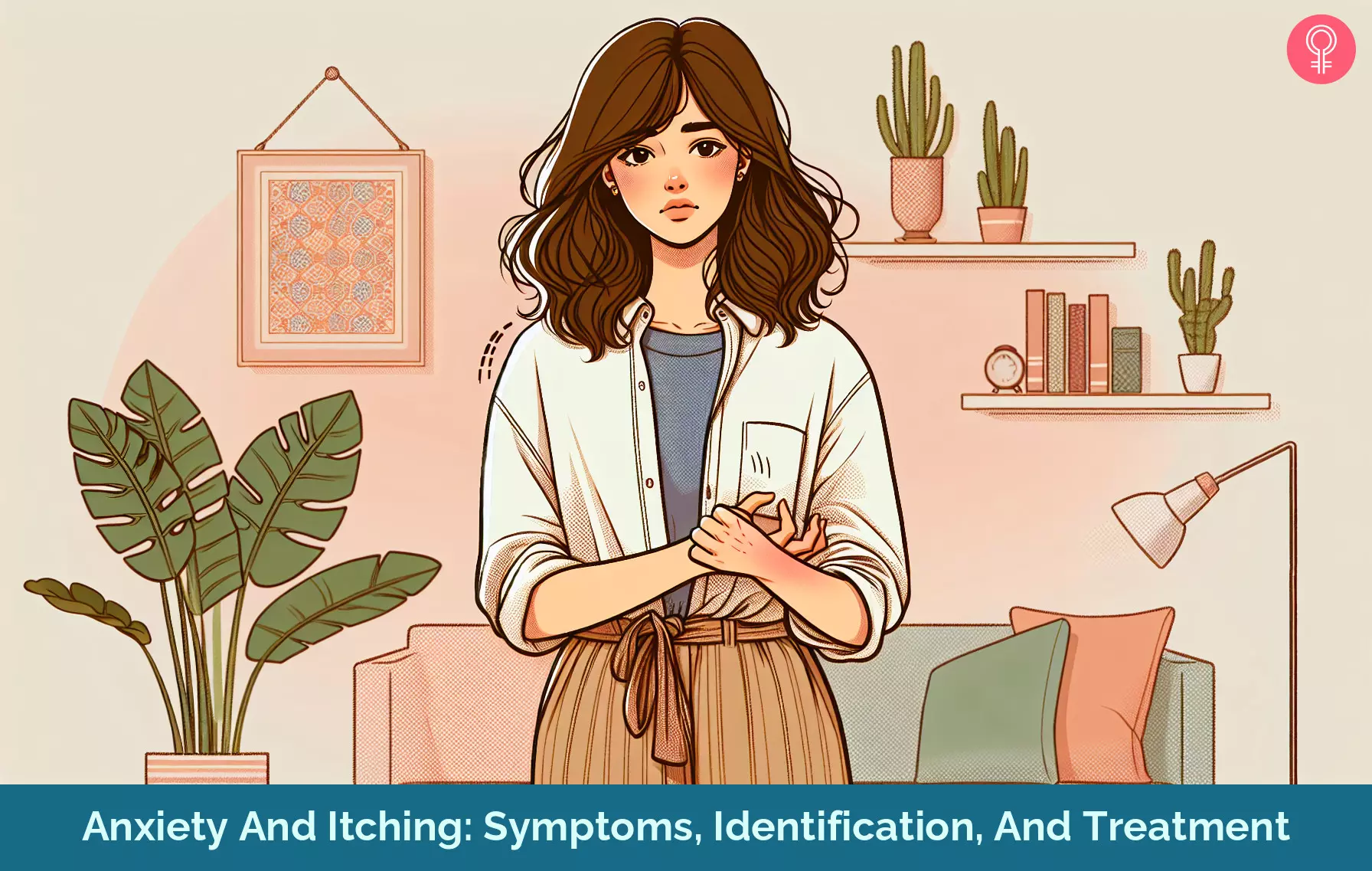
Image: Dall·E/StyleCraze Design Team
Ever wondered why anxiety can make your skin itch? Uncover the fascinating connection between your mental health and itchy skin in this informative video.
References
Articles on StyleCraze are backed by verified information from peer-reviewed and academic research papers, reputed organizations, research institutions, and medical associations to ensure accuracy and relevance. Read our editorial policy to learn more.
- The Vicious Cycle of Itch and Anxiety
https://www.ncbi.nlm.nih.gov/labs/pmc/articles/PMC5845794/ - Anxiety
https://www.ncbi.nlm.nih.gov/books/NBK470361/ - Stress itch and quality of life in chronic urticaria females
https://www.ncbi.nlm.nih.gov/labs/pmc/articles/PMC5949545/ - Miliaria
https://www.ncbi.nlm.nih.gov/books/NBK537176/ - Risk factors for mental illness in adults with atopic eczema or psoriasis: protocol for a systematic review
https://pubmed.ncbi.nlm.nih.gov/33372068/ - Mindfulness as Predictor of Itch Catastrophizing in Patients With Atopic Dermatitis: Results of a Cross-Sectional Questionnaire Study
https://www.ncbi.nlm.nih.gov/labs/pmc/articles/PMC8044843/ - Global prevalence of mental health issues among the general population during the coronavirus disease-2019 pandemic: a systematic review and meta-analysis
https://www.ncbi.nlm.nih.gov/pmc/articles/PMC8119461/
Read full bio of Dr. Sruthi Alla
Read full bio of Monomita Chakraborty
Read full bio of Anjali Sayee
Read full bio of Swathi E






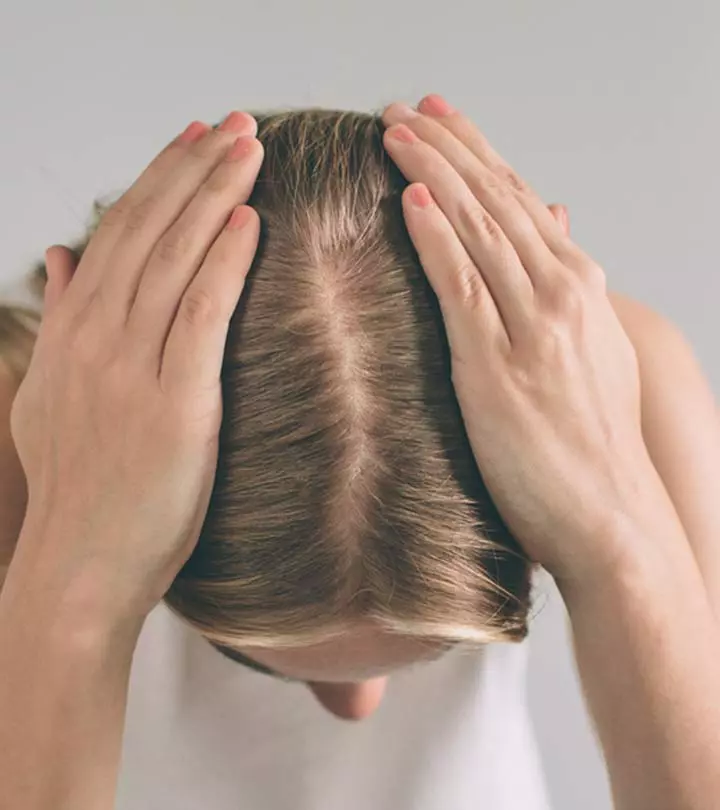
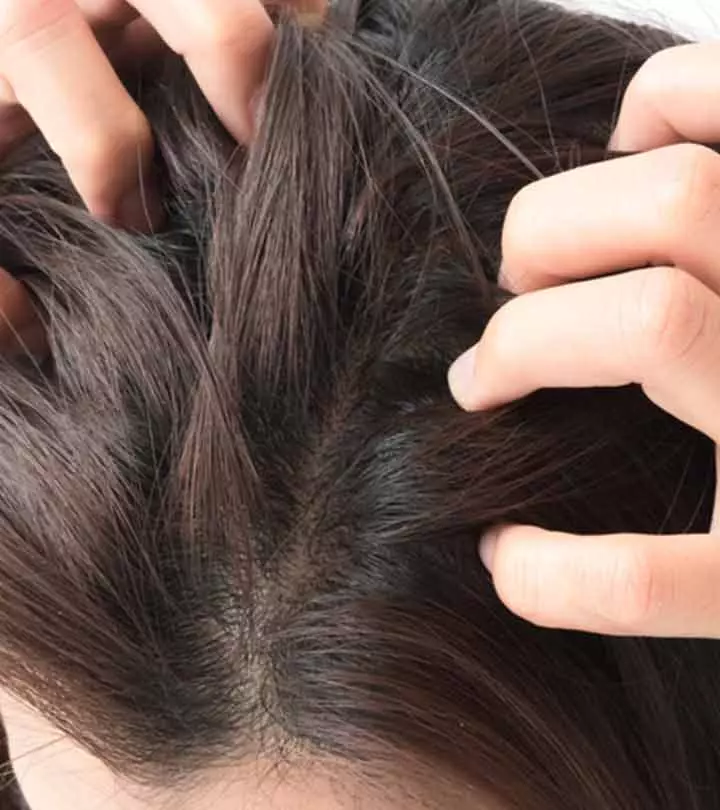
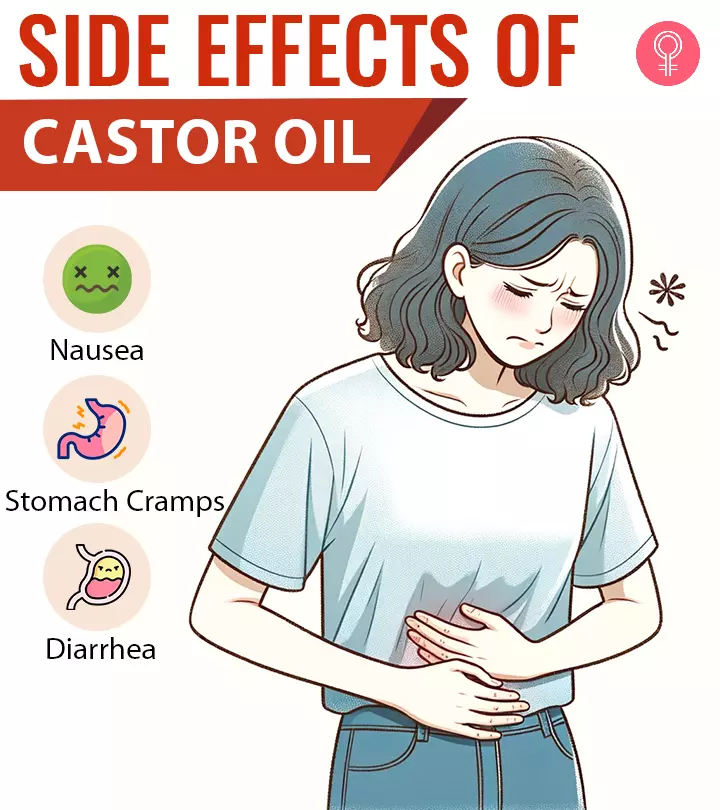
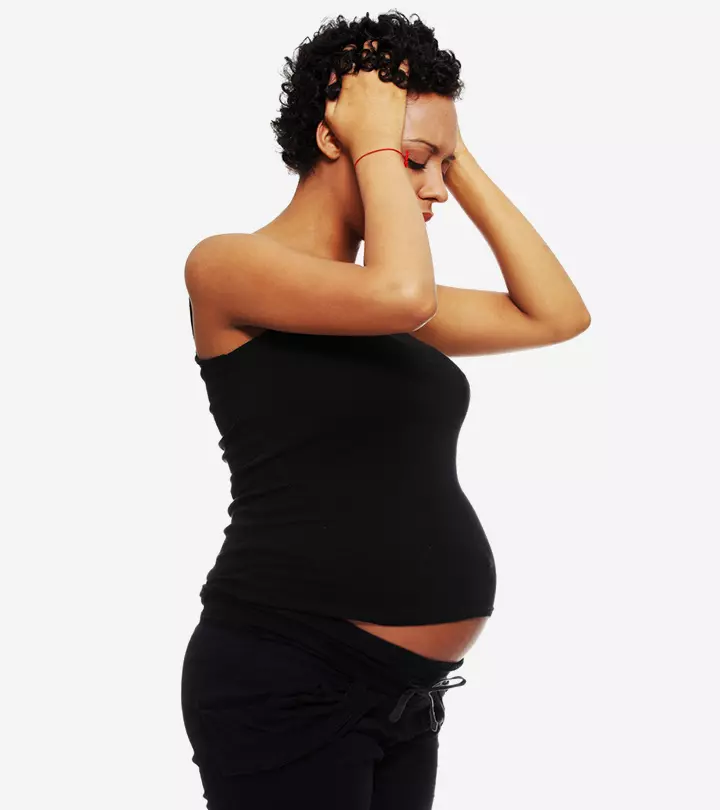

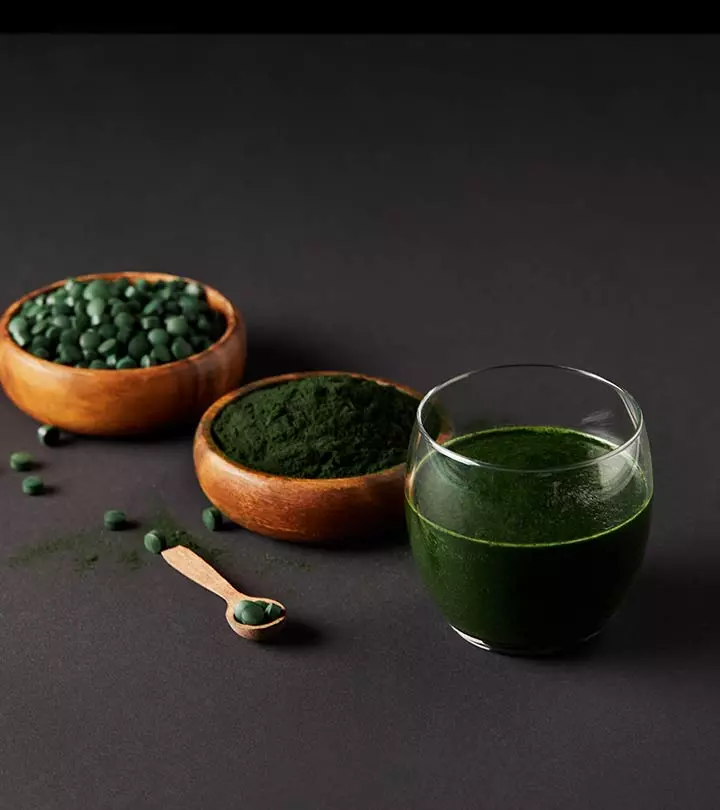


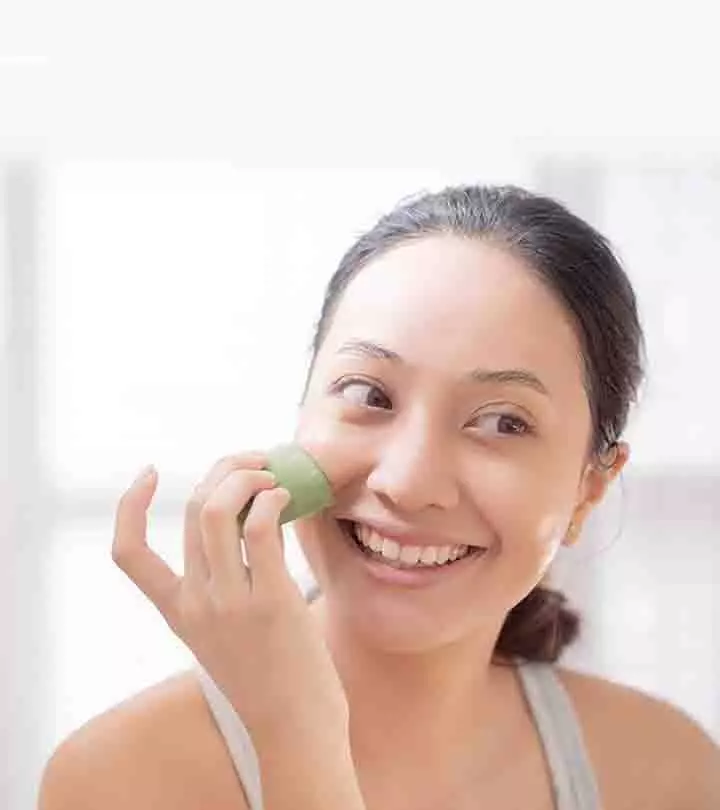
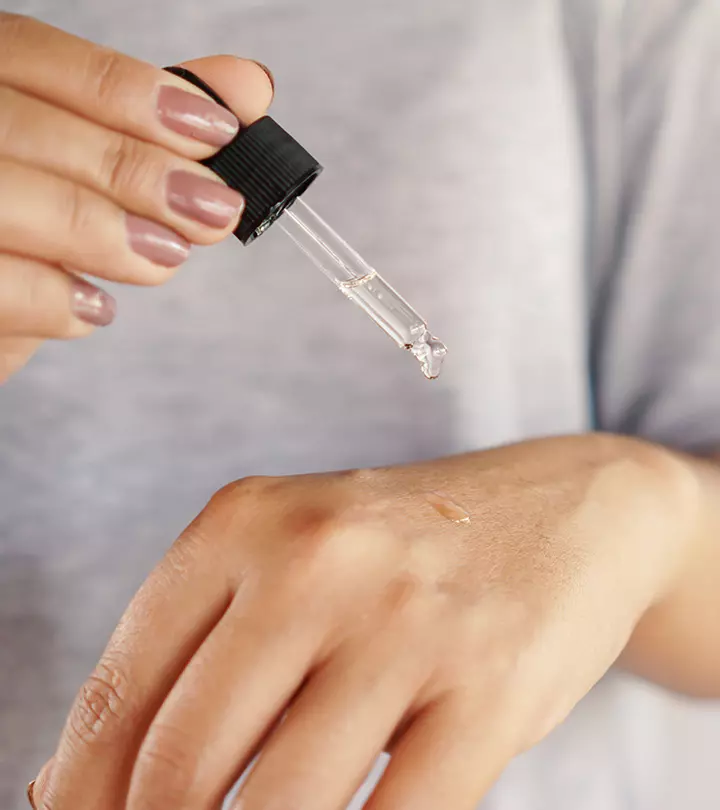
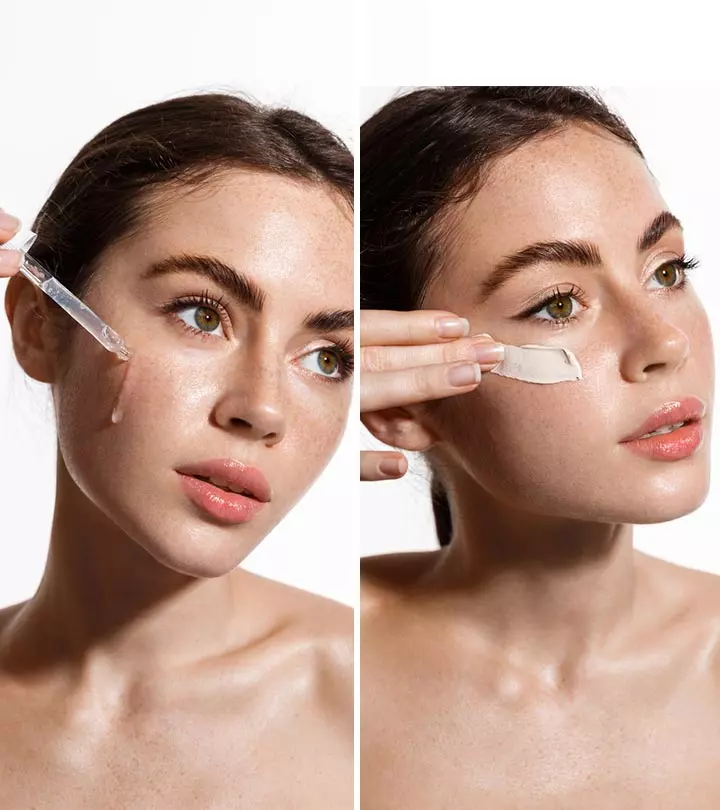
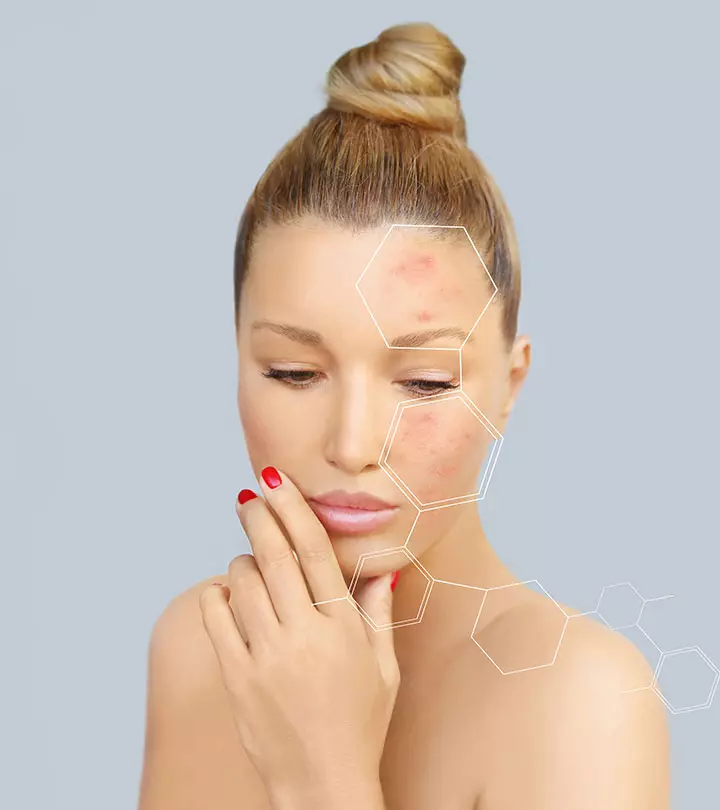
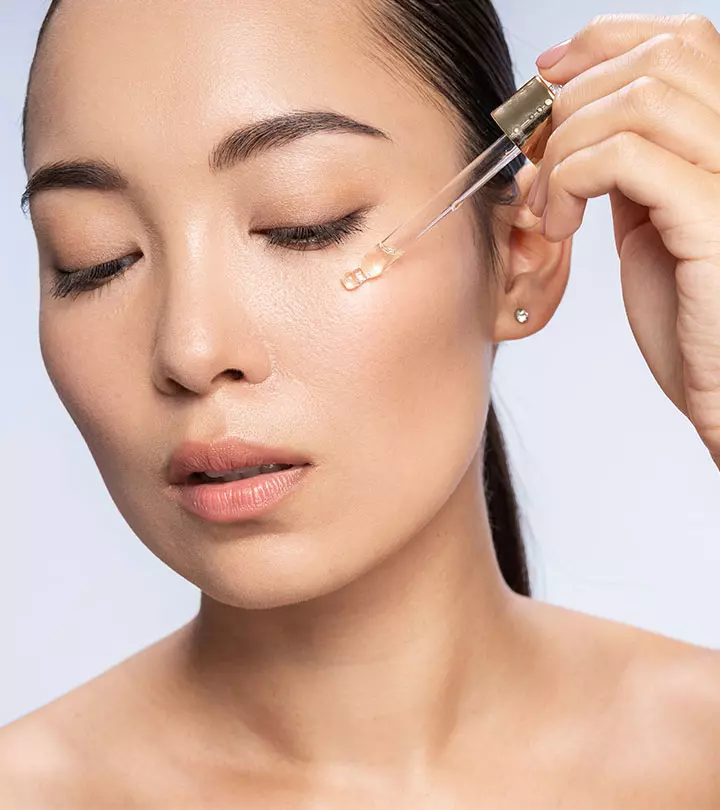
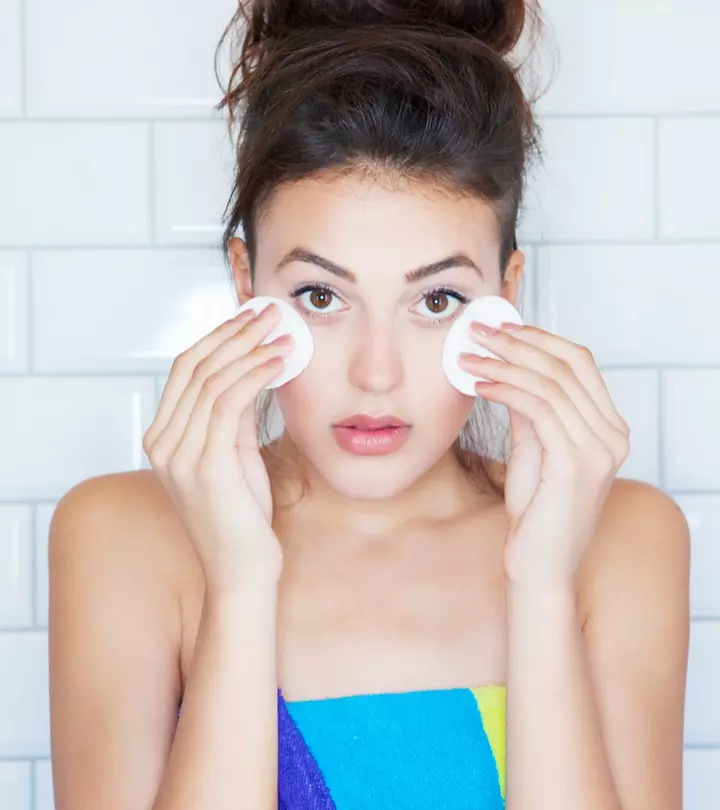
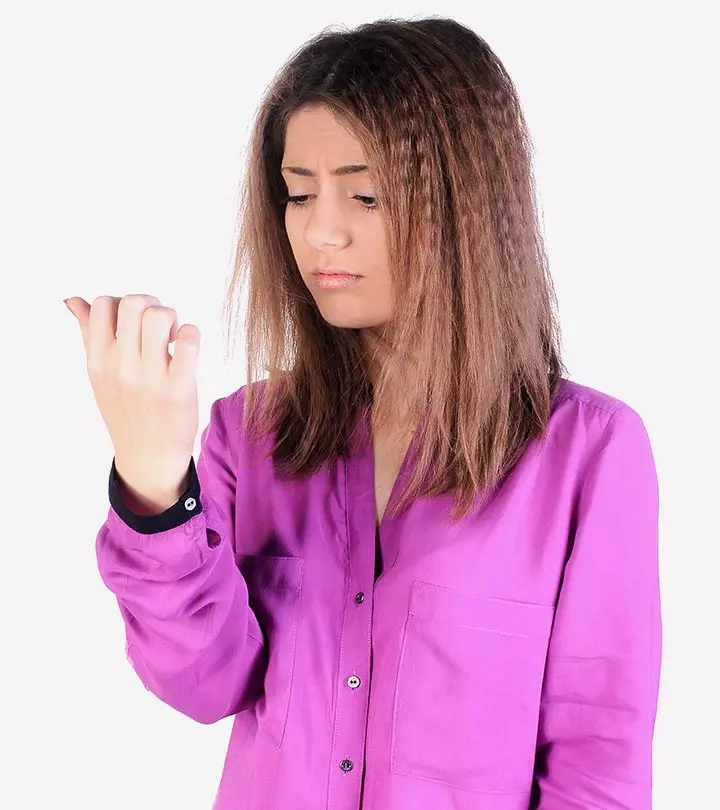
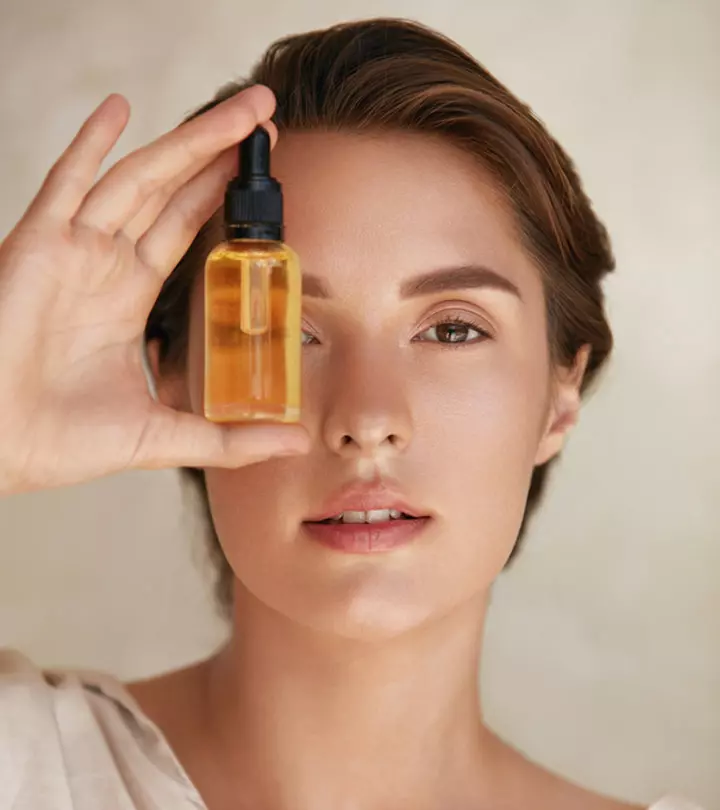
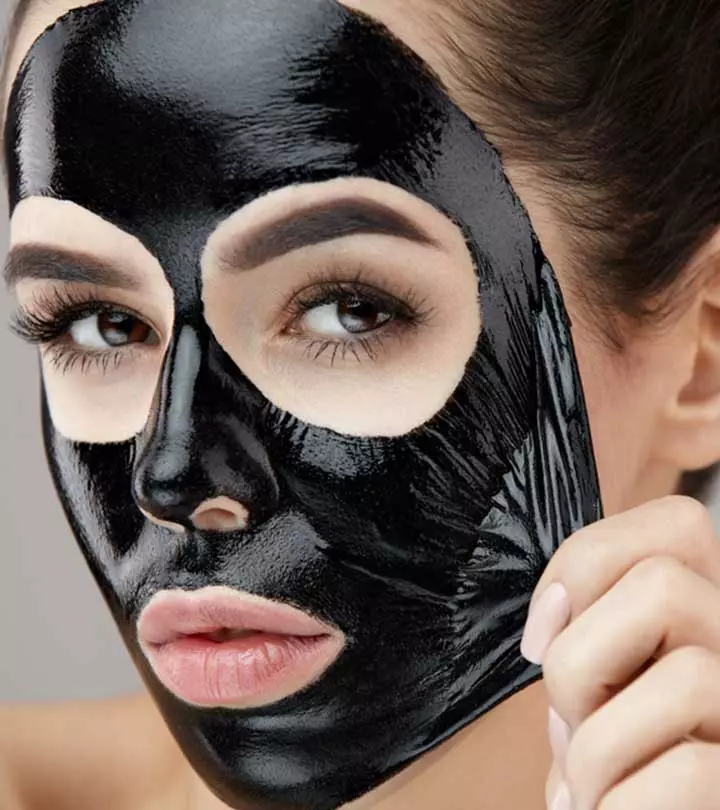
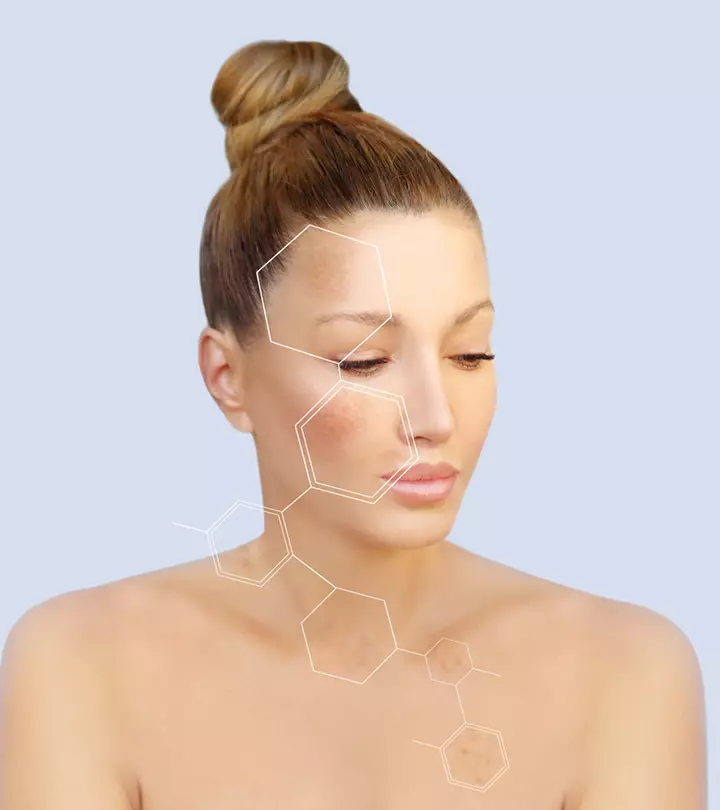
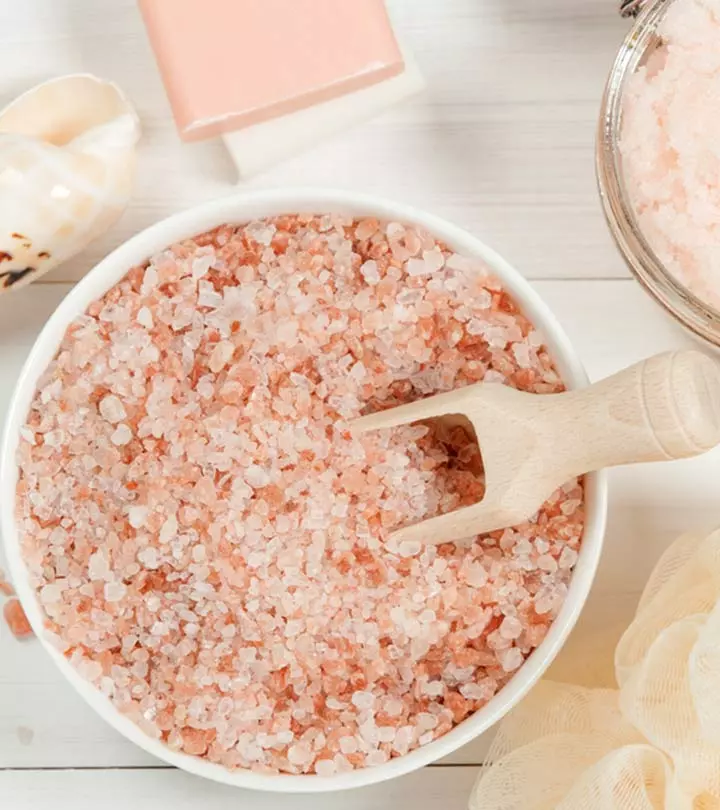
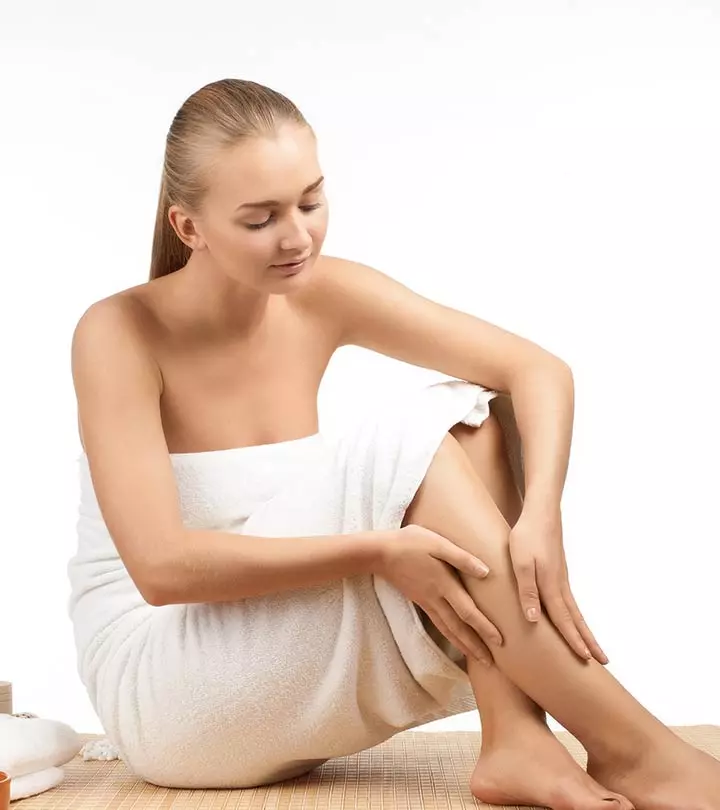
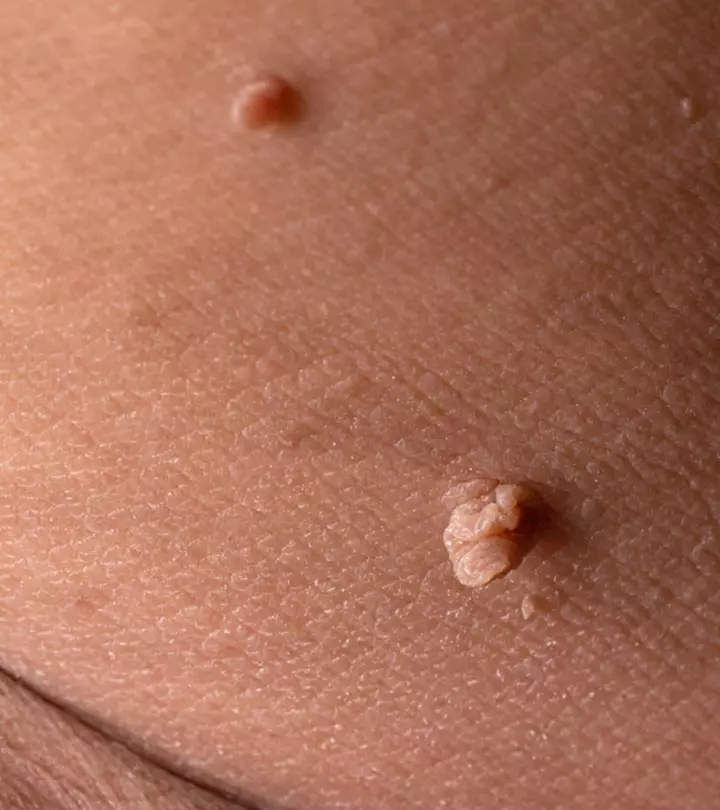
Community Experiences
Join the conversation and become a part of our empowering community! Share your stories, experiences, and insights to connect with other beauty, lifestyle, and health enthusiasts.